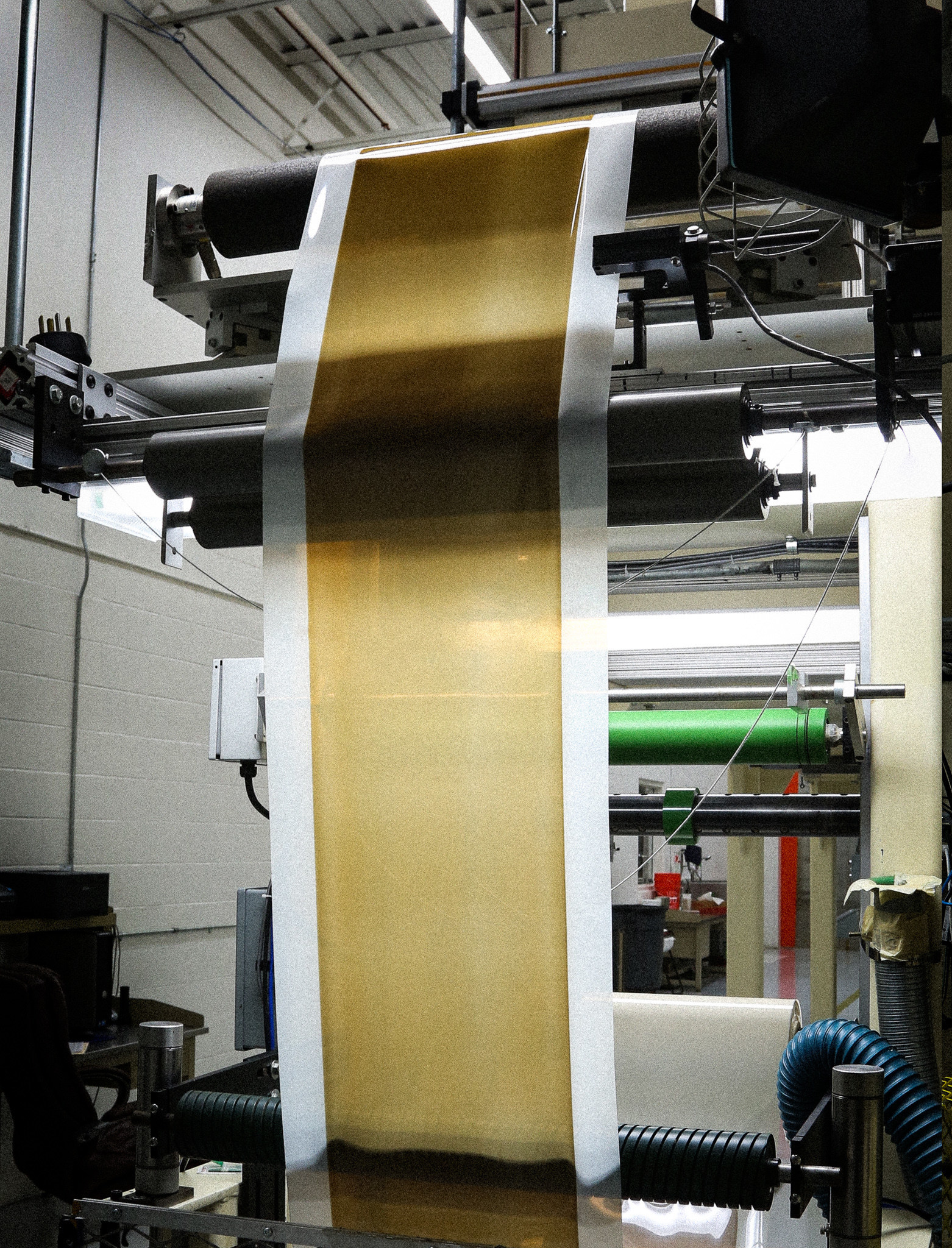
News
Pemion™ hydrocarbon membrane and polymer launches, trying to advance hydrogen fuel cell applications
September 21, 2022
By
Canadian Manufacturing


Ionomr Innovations’ hydrocarbon-based membranes are produced roll-to-roll and are now available for heavy-duty industrial applications at scale. (CNW Group/Ionomr Innovations Inc.)
VANCOUVER — On Sep. 21, Ionomr Innovations Inc. released its Pemion hydrocarbon-based proton exchange membrane and polymer, trying to advance materials for green hydrogen fuel cell applications in the heavy-duty industry.
hydrocarbon-based proton exchange membrane and polymer, trying to advance materials for green hydrogen fuel cell applications in the heavy-duty industry.
Pemion is used in large fuel cell applications including heavy-duty transport, automotive, and stationary power, offering chemical and mechanical stability, conductivity, durability, and efficiency, all of which reportedly reduce the unit cost of the fuel cell.
is used in large fuel cell applications including heavy-duty transport, automotive, and stationary power, offering chemical and mechanical stability, conductivity, durability, and efficiency, all of which reportedly reduce the unit cost of the fuel cell.
Pemion is reportedly environmentally friendlier than conventional fluorinated membrane and polymer technology, decreasing reliance on these increasingly regulated materials, and enables simplified and lower-cost recycling for the recovery of expensive catalysts at end of life.
is reportedly environmentally friendlier than conventional fluorinated membrane and polymer technology, decreasing reliance on these increasingly regulated materials, and enables simplified and lower-cost recycling for the recovery of expensive catalysts at end of life.
Bill Haberlin, Chief Executive Officer of Ionomr, says, “Governments and regulators across Europe, in the U.S., indeed around the world, are rightly calling for the elimination of toxic, perfluorinated materials. Pemion is an ideal replacement for conventional materials, for its environmental benefits and for its superior performance. With our Pemion
is an ideal replacement for conventional materials, for its environmental benefits and for its superior performance. With our Pemion materials now produced at scale, our partners can take their fuel cell and other clean energy technologies to market faster, cleaner, and with better performance. Pemion
materials now produced at scale, our partners can take their fuel cell and other clean energy technologies to market faster, cleaner, and with better performance. Pemion provides a tangible differentiation in the heavy-duty market.”
provides a tangible differentiation in the heavy-duty market.”
Dr. Matthias Breitwieser, Chief Technology Officer at ionysis GmbH, said: “We have been collaborating with Ionomr for several years, and after working with their Pemion® materials have now achieved a step-change in the performance of fully hydrocarbon membrane-electrode-assemblies (MEAs), rivaling PFSA solutions. Based on this success, we’ve established our new company, ionysis, to develop high-performance hydrocarbon MEAs as a viable alternative to conventional solutions.”
Pemion materials’ gains in performance and reductions in gas crossover reportedly result in a reduction in lifetime hydrogen fuel cell costs. Higher temperatures are possible for higher power stacks with improved cooling and higher efficiency, and the lifetime of the fuel cell is enhanced due to reduced degradation.
materials’ gains in performance and reductions in gas crossover reportedly result in a reduction in lifetime hydrogen fuel cell costs. Higher temperatures are possible for higher power stacks with improved cooling and higher efficiency, and the lifetime of the fuel cell is enhanced due to reduced degradation.
Print this page